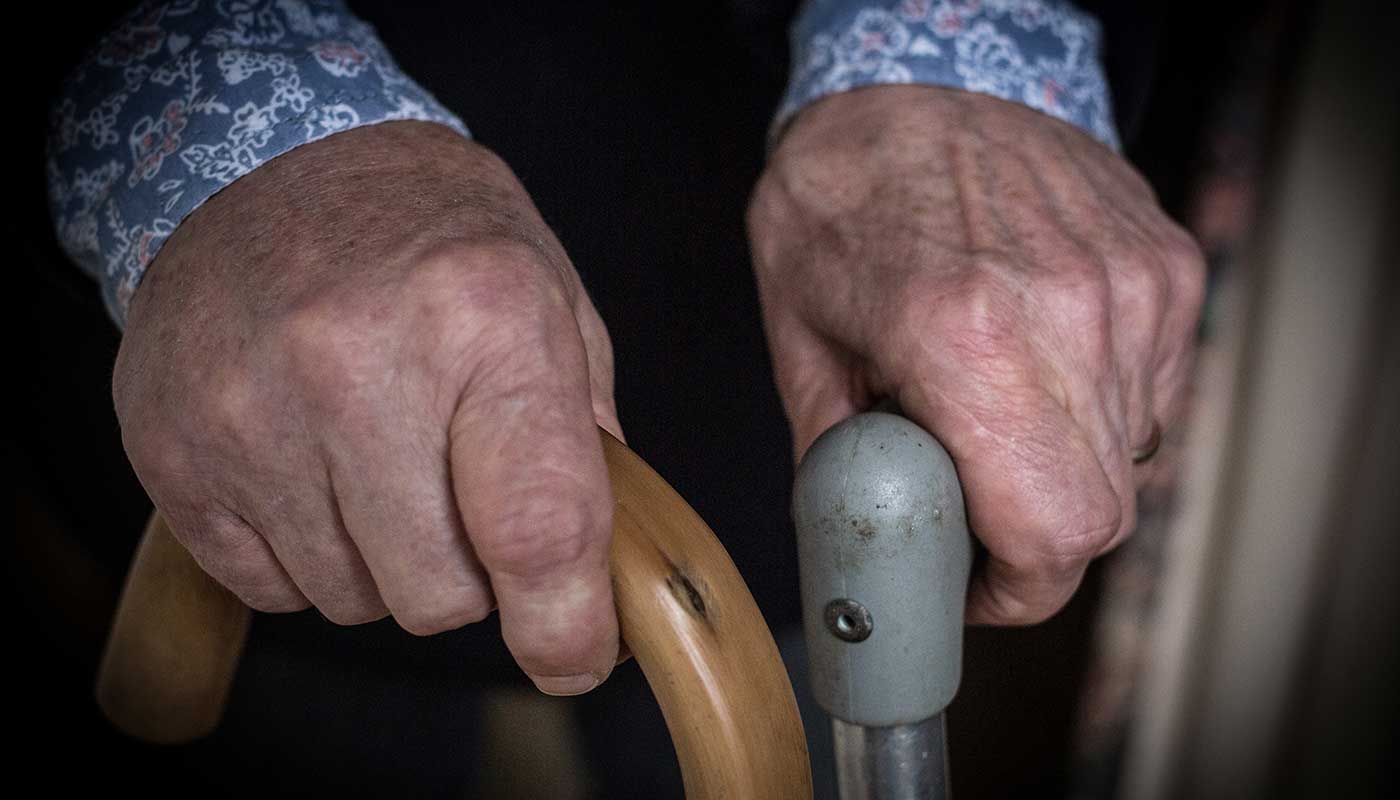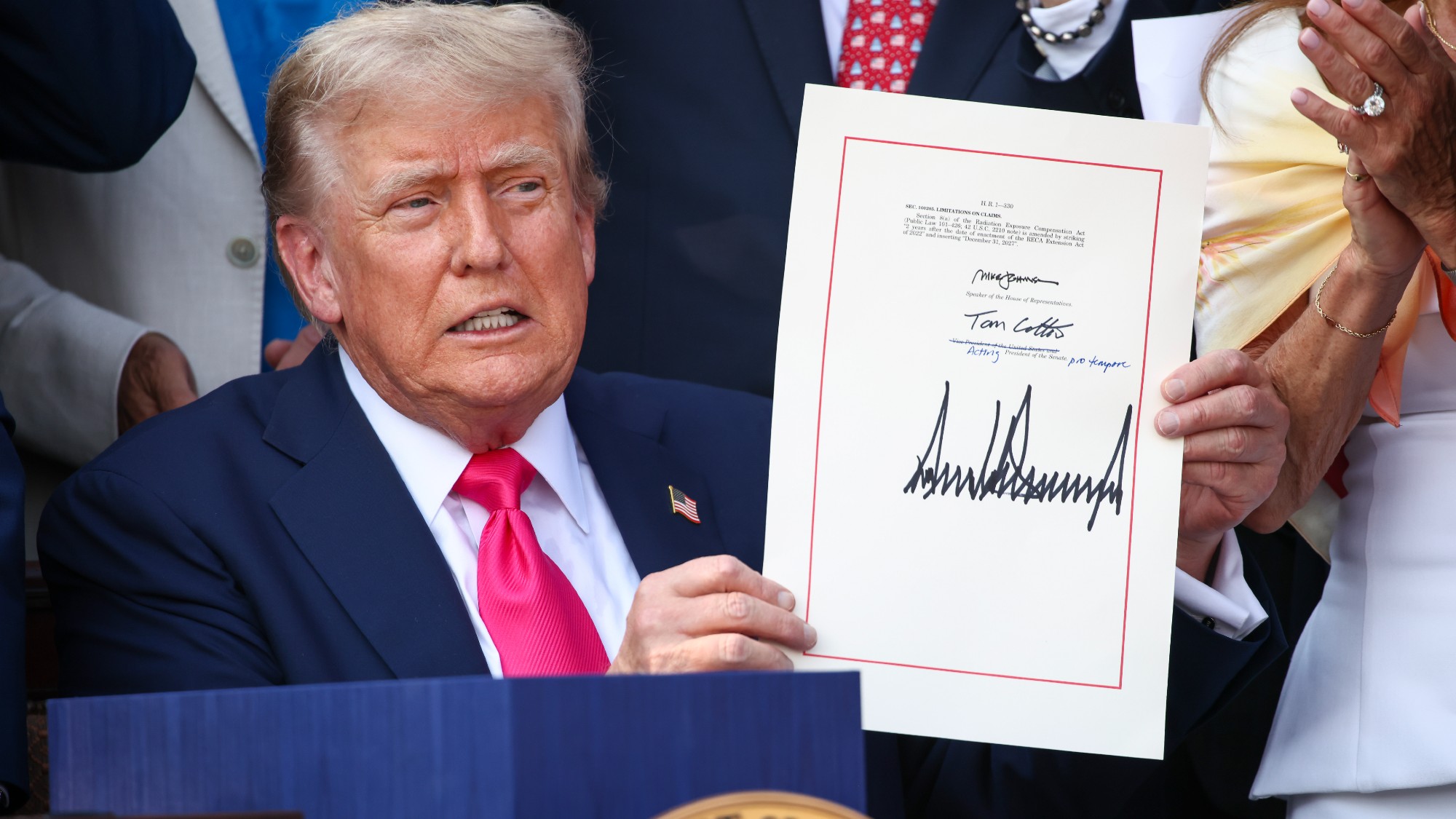Should there be a tax for elderly care?
Over-40s should pay a 'social care premium', two committees say

A free daily email with the biggest news stories of the day – and the best features from TheWeek.com
You are now subscribed
Your newsletter sign-up was successful
A powerful group of MPs has called for the introduction of a new tax for over-40s, in a bid to secure funding for elderly care.
The call for a “social care premium” came in a rare joint report by the Housing, Communities and Local Government and Health and Social Care Committees, which described the current system as “unsustainable”.
“We can no longer delay finding a fair and sustainable settlement for social care,” Sarah Wollaston, chair of the Health and Social Care Committee, said.
The Week
Escape your echo chamber. Get the facts behind the news, plus analysis from multiple perspectives.

Sign up for The Week's Free Newsletters
From our morning news briefing to a weekly Good News Newsletter, get the best of The Week delivered directly to your inbox.
From our morning news briefing to a weekly Good News Newsletter, get the best of The Week delivered directly to your inbox.
“Too many people are being left without the care and support they need and it is time for a decision to be made about how the costs are shared,” she continued.
Is the tax necessary?
The aim of the proposal is to ensure that the “personal elements” of social care, such as help with eating, dressing and washing, are available for free for the elderly, whether they receive that assistance at home or an aged care facility.
The proposal “echoes the funding of social care in Japan, which has the highest proportion of older people of any country”, the Times says.
A free daily email with the biggest news stories of the day – and the best features from TheWeek.com
The Independent reports that the fund could either “operate as an additional element of national insurance or through a separate mechanism, as happens in Germany”.
How would it work?
Under the cross-party proposal, payments would begin once a person turns 40 and continue beyond the age of 65, with the value of pensions and investments taken into account.
However, the report says that a minimum earnings threshold should be in place for the protection of low-income earners.
-
 Bad Bunny’s Super Bowl: A win for unity
Bad Bunny’s Super Bowl: A win for unityFeature The global superstar's halftime show was a celebration for everyone to enjoy
-
 Book reviews: ‘Bonfire of the Murdochs’ and ‘The Typewriter and the Guillotine’
Book reviews: ‘Bonfire of the Murdochs’ and ‘The Typewriter and the Guillotine’Feature New insights into the Murdoch family’s turmoil and a renowned journalist’s time in pre-World War II Paris
-
 Witkoff and Kushner tackle Ukraine, Iran in Geneva
Witkoff and Kushner tackle Ukraine, Iran in GenevaSpeed Read Steve Witkoff and Jared Kushner held negotiations aimed at securing a nuclear deal with Iran and an end to Russia’s war in Ukraine
-
 What to know before filing your own taxes for the first time
What to know before filing your own taxes for the first timethe explainer Tackle this financial milestone with confidence
-
 3 required minimum distribution tax mistakes to avoid
3 required minimum distribution tax mistakes to avoidThe Explainer Missteps in making withdrawals from tax-advantaged retirement accounts can cost you big
-
 Is duty-free shopping worth it?
Is duty-free shopping worth it?the explainer How to determine whether you are actually getting a good deal
-
 What the 2025 Autumn Budget could mean for your wallet
What the 2025 Autumn Budget could mean for your walletThe Explainer Chancellor Rachel Reeves will reveal her latest plan to balance the nation’s finances in November
-
 What taxes do you pay on a home sale?
What taxes do you pay on a home sale?The Explainer Some people — though not many — will need to pay capital gains taxes upon selling their home
-
 Clean energy tax credits are going away. Here's how to get them before it's too late.
Clean energy tax credits are going away. Here's how to get them before it's too late.The Explainer Trump's recently passed megabill promises the early demise of clean energy tax credits
-
 How will the new tax deductions on auto loans work?
How will the new tax deductions on auto loans work?the explainer Trump's One Big Beautiful Bill Act introduced a tax deduction on auto loan interest — but eligibility for the tax break is limited
-
 8 ways Trump's bill will change your taxes
8 ways Trump's bill will change your taxesThe Explainer The 'big beautiful bill' was recently signed into law. Here's what it might mean for your wallet.